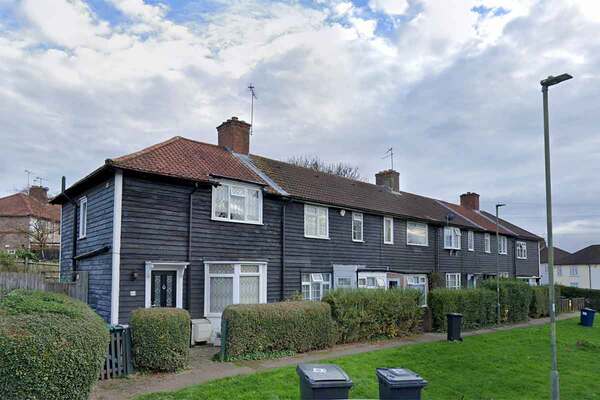You are viewing 1 of your 1 free articles
Five key takeaways from the Tai 2019 conference
Wales’ annual Chartered Institute of Housing (CIH) conference returned once again to the SSE Swalec cricket stadium in Cardiff this week.
Much of the debate naturally centred on the Independent Review of Affordable Housing Supply, which was launched just before the event kicked off on Wednesday.
As ever, Inside Housing was in attendance keeping up with the key issues on the minds of delegates and has rounded up five of the key takeaways from the conference.
1. This is where the work begins
The affordable housing review was highly anticipated and involved a series of discussions and consultation sessions, but its publication is by no means the end – now is where the real work begins.
In general the sector welcomed the review panel’s recommendations but it has not been given everything it was asking for. There are some concerns that remain about the pronounced focused on value for money. Lynn Pamment, chair of the review, was clear that “people should not be afraid of value for money” – but the same sentiment was heard repeated again and again: “We don’t want to end up like England”. Community Housing Cymru (CHC) is adamant that more investment is needed from Welsh government to achieve its housebuilding targets and it believes the review supports that – whether ministers agree is another matter.
When it formally responds to the review in July, the Welsh government wants to have an “implementable plan”, according to housing minister Julie James. That means the next two months represent a crucial window for talking through the detail of the review and shaping that action plan.
That will mean some careful lobbying and a compromise on priorities. As one sector figure put it to Inside Housing: “Welsh government wants to talk about how housing associations and councils can collaborate, housing associations want to talk about rents.”
2. The rents debate will rumble on
Which brings us to the second point. There was some muted disappointment about the review’s message on rents. True, it called for a five-year settlement – which grabbed the headlines. But one housing association chief executive remarked to Inside Housing that “it could have been more radical” on the question of local rent setting.
Ms Pamment observed during a conference session on the review that there is still “quite a difference between those who wanted to continue with current Welsh government policy and those who wanted complete freedom”.
It seems the panel has decided to leave the ever-contentious question of rents partly to the politicians. In the meantime, the housing sector will keenly await an announcement on rents.
3. Councils are under pressure to build
Housing minister Ms James gave an assured speech – appearing to go off-script at one point as she launched a scathing attack on the private sector for building “the slums of the future”.
But there were other interesting nuggets in there as well. One was her reiteration that social housing is her “top priority” – and more than one delegate noted that she stuck to the term “social housing” as opposed to “affordable”.
More interesting still were her words on council development: “Now that the borrowing cap imposed by the UK government has been abolished, authorities can and must start building again.” She emphasised her desire for town halls to follow the likes of Cardiff, Carmarthenshire and Flintshire councils – though some will likely require some prodding.
Ms James insisted she understands “the scale of the challenge” and suggested that greater pooling of skills and resources will be required in some areas, adding: “I’m not yet convinced that we’ve lined up all that expertise as effectively as we might.”
The review picked up on these issues as well, and Ms Pamment noted the panel “were really struck during our work by the stretch on skills and resources” and the importance of not increasing competition.
But precisely how ministers will rise to this challenge remains to be seen.
4. Decarbonisation will become a big issue
This week the Welsh government declared a climate emergency. With environmental issues set to move up on the agenda, the affordable housing review already had lots to say on the subject of decarbonisation.
The central recommendation is that all new affordable homes should be built to Energy Performance Certificate (EPC) ‘A’ standards from 2021 – with all new homes meeting this standard by 2025. CHC has made similar calls in the past and the sector will broadly welcome this concerted approach.
But the challenge will be enormous. At a session on decarbonisation, Lisa Dobbins, head of housing decarbonisation at the Welsh government, said Wales has the most energy inefficient stock in Europe. The past decade has only seen the average EPC rating of homes increase from E to D. “We haven’t got that far in 10 years, and that’s with an awful lot of money,” she said.
Clearly, this is a issue for all tenures but the government has most control over social housing so it will start here first. And, according to Ms Dobbins, ministers are “right on it”.
Both stock transfer and traditional housing associations have concerns about how the decarbonisation goal will be funded. The review suggested stock transfers and councils should be “required to demonstrate an accelerated programme of decarbonisation of existing homes” in order to continue receiving dowry funding once Welsh Housing Quality Standard is achieved in 2020. For some landlords which are still heavily dowry dependent, this could represent a major change to the business and its priorities.
For traditional housing associations, the review was silent on the funding question altogether.
5. Could regulation take on a greater tenant focus?
Terrie Alafat, chief executive of the CIH, commented early on in the conference that her only criticism of the affordable housing review is that is did not have more to say about tenant engagement.
And in a session on the second morning entitled ‘What does a 21st century housing organisation look like?’, the most eye-catching bits were all about maintaining focus on tenant engagement and services. Carol Kay, the retiring head of regulation strategy for the Welsh government, was particularly forthright, echoing Ms Alafat’s views that there wasn’t enough in the review about tenants.
She was critical of providers “chasing shiny stuff” over and above focusing on their basic services (and it was telling that the development seminar sessions at the conference were always packed, while other sessions about, for instance, homelessness strategies were far emptier).
Of course, much of this reflects debates currently being held in England – but the Welsh sector prides itself on the strength and clarity of its social purpose, so it will be keen to keep ahead of the game on tenant engagement issues. Ms Kay revealed she has suggested to her regulation colleagues that engagement could form a bigger part of their work, and it will be interesting to see that results in change.
At-a-glance: key recommendations from the Independent Review of Affordable Housing Supply in Wales
- Councils should be required to provide regular, standardised Local Housing Market Assessments
- New “consolidated and simplified” standards for grant-funded and Section 106 homes should be developed, concentrating on minimum space standards, including for inside and outside storage
- All new affordable homes should be near zero carbon/Energy Performance Certificate ‘A’ standard from 2021, with all homes achieving the same standards by 2025 irrespective of tenure
- The Welsh government should develop a strategy for further use of offsite manufacturing and modern methods of construction
- A new five-year rent policy from 2020/21, with new flexibilities and a focus on landlords considering value for money as well as affordability
- Councils should be able to access grant and be encouraged to partner with housing associations
- A new arm’s-length body to act as a hub for public sector land management
- Grants should be reformed to introduce a new “flexible, long-term, five-year affordable housing supply partnerships model”, which combines existing funding pots and tests “the contribution of private finance and alternative finance models”
- The Welsh government should commission an independent financial review of councils and large-scale voluntary transfer housing associations receiving Dowry and Major Repairs Allowance to help them meet the Welsh Housing Quality Standard (WHQS)
- Landlords “should be required to demonstrate an accelerated programme of decarbonisation of existing homes” in order to continue receiving the funding once WHQS is achieved












